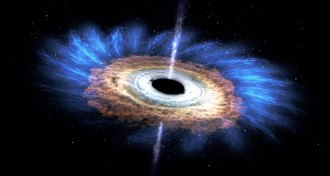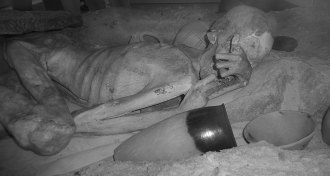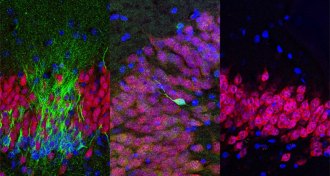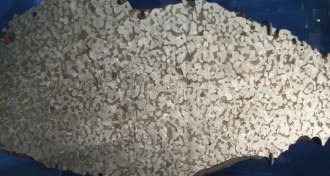All Stories
-
 Quantum Physics
Quantum PhysicsSuperconductors may shed light on the black hole information paradox
Materials that conduct electricity without resistance might mimic black hole physics.
-
 Science & Society
Science & SocietyWhat we do and don’t know about how to prevent gun violence
Background checks work to prevent gun violence; concealed carry and stand-your-ground laws don’t. But lack of data makes it hard to make other links.
-
 Anthropology
AnthropologyMuseum mummies sport world’s oldest tattoo drawings
A wild bull and symbolic designs were imprinted on the bodies of two Egyptians at least 5,000 years ago.
By Bruce Bower -
 Science & Society
Science & SocietyDiscussing what matters when facts are not enough
Editor in Chief Nancy Shute reflects on finding common ground with science and policy.
By Nancy Shute -
 Neuroscience
NeuroscienceReaders muse about memory, magnetic monopoles and more
Readers had questions about the physical trace of memory, magnetic monopoles, blowflies and more.
-
 Neuroscience
NeuroscienceThe debate over how long our brains keep making new nerve cells heats up
Adult humans don’t have newborn nerve cells in a memory-related part of the brain, a controversial paper suggests.
-
 Physics
PhysicsGive double-layer graphene a twist and it superconducts
When graphene layers are twisted to a “magic angle,” the material superconducts.
-
 Health & Medicine
Health & MedicineNewer drugs make hepatitis C-positive kidneys safe for transplant
People without hepatitis C did not contract the disease after receiving successful transplants of infected kidneys along with newer antiviral drugs.
-
 Earth
EarthDiamonds reveal sign of the deepest water known inside Earth
A rare form of ice crystal in the gems could have formed only at the crushing pressures found in the mantle.
-
 Tech
TechOn Twitter, the lure of fake news is stronger than the truth
An analysis of more than 4.5 million tweets discussing false and true stories reveals that in the Twittersphere, fake news gets more views.
-
 Astronomy
Astronomy50 years ago, pulsars burst onto the scene
Thousands of pulsars have been discovered since the announcement of their detection 50 years ago.
-
 Physics
PhysicsSome meteorites contain superconducting bits
Scientists find materials that conduct electricity without resistance in two meteorites.